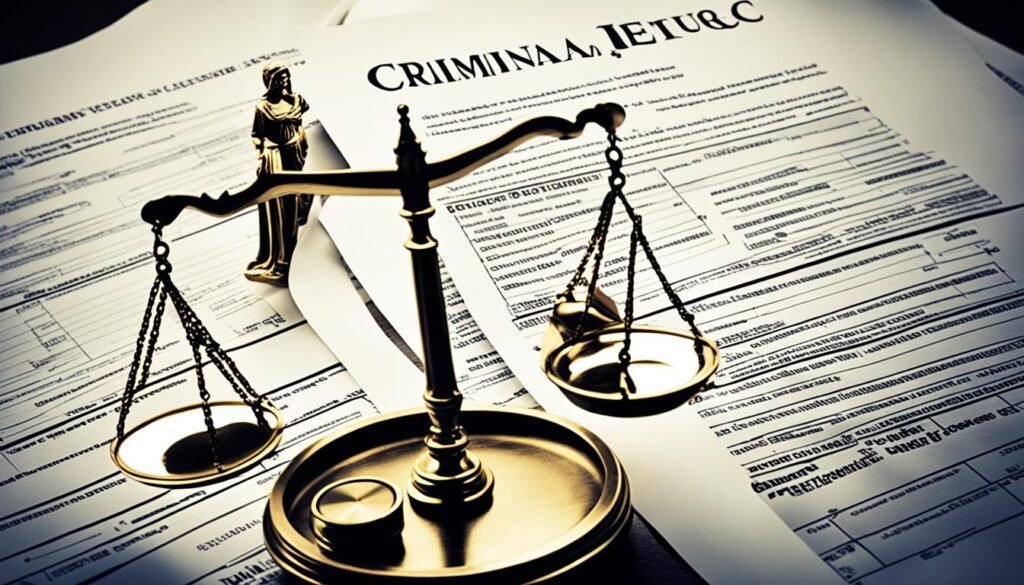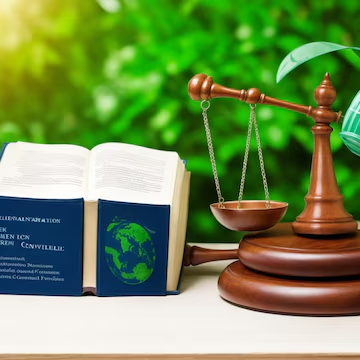The United States Constitution, particularly the Bill of Rights, enshrines a range of fundamental freedoms and protections for American citizens. These civil liberties are natural rights inherent to the individual, serving as crucial restraints on the government’s ability to infringe upon the basic rights and freedoms of the people. While often referred to as “rights,” civil liberties actually function as prohibitions on the government, with the language of the First Amendment explicitly stating that “Congress shall make no law” abridging liberties such as freedom of speech, religion, and assembly.
Also Read: Foundations Of Civil Law: Principles And Practice
In contrast, civil rights are legal entitlements established through legislation, such as the Civil Rights Act of 1964, which prohibits discrimination based on race, color, religion, sex, or national origin. A violation of civil rights gives the injured party the right to seek legal recourse against the violator. The distinction between civil liberties and civil rights is crucial, as it shapes the way these fundamental freedoms and protections are understood and enforced within the American constitutional system.
Key Takeaways
- Civil liberties are inherent freedoms protected by the U.S. Constitution, primarily through the Bill of Rights.
- Civil liberties operate as restraints on government power, while civil rights are legal entitlements established through legislation.
- The First Amendment’s language prohibiting Congress from making laws that abridge civil liberties is a central tenet of constitutional law.
- Violations of civil rights give the injured party the right to seek legal action against the violator.
- The distinction between civil liberties and civil rights is crucial in understanding the American constitutional framework.
Constitutional Law: An Overview
Constitutional law is the body of law that defines the role, powers, and structure of different entities within a state, namely, the executive, the legislative, and the judicial branches of government. It also articulates the basic principles by which the state governs itself.
Also Read: What Is Administrative Law And Why Does It Matter?
Definition of Constitutional Law
Constitutional law encompasses the fundamental principles and doctrines that establish the framework of a country’s legal and political system. It serves as the foundation for the United States Constitution, which outlines the structure, powers, and limitations of the federal government.
Significance of Constitutional Law
The significance of constitutional law lies in its role in establishing the foundation for a country’s legal and political system, as well as protecting the fundamental rights and liberties of its citizens. Constitutional law ensures that the government operates within the boundaries set by the Constitution and upholds the rule of law.
Sources of Constitutional Law
The primary sources of constitutional law include the written Constitution, judicial interpretations by the Supreme Court, and amendments to the Constitution. These sources work together to define the limits of governmental power and safeguard the civil rights and civil liberties of the American people.
| Key Aspects of Constitutional Law | Description |
|---|---|
| Judicial Review | The power of the courts to determine the constitutionality of government actions and laws. |
| Separation of Powers | The division of authority among the executive, legislative, and judicial branches of government. |
| Federalism | The framework that divides power between the national and state governments, ensuring a balance of federal and state authority. |
| Civil Liberties | The fundamental freedoms protected by the Bill of Rights, such as freedom of speech, religion, and assembly. |
| Equal Protection | The guarantee that the government will treat all people equally under the law, as established by the Fourteenth Amendment. |
Civil Liberties and the Bill of Rights

The Bill of Rights, the first ten amendments to the U.S. Constitution, safeguards a range of civil liberties that are central to the American constitutional system. These fundamental rights and freedoms serve as important restraints on government power, protecting individuals from undue interference or overreach by the state.
Also Read: Property Law: Rights And Responsibilities Of Owners
First Amendment Rights
The First Amendment guarantees essential freedoms such as the freedom of religion, freedom of speech, freedom of the press, and freedom of assembly. These civil liberties enable citizens to engage in political discourse, express their views, and participate in the democratic process without fear of government reprisal.
Fourth Amendment Protections
The Fourth Amendment safeguards individuals against unreasonable searches and seizures by the government. This constitutional right requires law enforcement to obtain a warrant based on probable cause before conducting searches or seizing property, ensuring a balance between public safety and individual privacy.
Due Process and Equal Protection
The Fifth and Fourteenth Amendments establish the principles of due process and equal protection under the law. These guarantees ensure that the government cannot deprive individuals of their fundamental rights without fair and impartial procedures, and that all persons are treated equally regardless of their race, gender, or other protected characteristics.
Freedom of Speech and Expression

The First Amendment’s guarantee of freedom of speech is a fundamental civil liberty, but it is not absolute. The Supreme Court has recognized certain limitations, such as prohibitions on incitement to imminent lawless action, true threats, and obscenity. The issue of hate speech, which may be offensive but not necessarily unlawful, remains a contentious area of First Amendment jurisprudence, with the courts seeking to balance free expression with the need to protect vulnerable groups from discrimination and harassment.
Also Read: International Perspectives On Criminal Law
Limitations on Free Speech
The First Amendment does not provide absolute protection for all forms of speech. The Supreme Court has recognized that the government can impose reasonable restrictions on the time, place, and manner of speech, as long as these restrictions are content-neutral and serve a significant governmental interest. For example, the Court has upheld restrictions on speech that incites imminent lawless action or that constitutes true threats. Additionally, the obscenity doctrine allows the government to regulate the distribution of sexually explicit materials that lack serious literary, artistic, political, or scientific value.
Hate Speech and Incitement
The regulation of hate speech remains a contentious issue in constitutional law. While the First Amendment generally protects even offensive or hateful speech, the Supreme Court has recognized that the government can restrict speech that is intended and likely to incite imminent lawless action. However, the line between protected hate speech and unprotected incitement is often blurred, leading to ongoing debates about the appropriate balance between free expression and the need to protect vulnerable groups from discrimination and harassment.
Right to Privacy and Personal Autonomy

The United States Constitution safeguards the fundamental right to privacy and personal autonomy, encompassing critical issues such as reproductive rights and the right to make decisions about one’s own body and medical treatment. The Supreme Court has consistently held that these rights are implicitly protected by the Due Process Clause of the Fifth and Fourteenth Amendments.
Also Read: What Role Does Justice Play In Justifying Law?
Reproductive Rights
The right to privacy includes the freedom to make decisions about reproduction and abortion. The landmark Roe v. Wade Supreme Court case in 1973 established that the Constitution provides a right to privacy that encompasses a woman’s decision to have an abortion. However, the scope and application of these reproductive rights remain highly controversial, with ongoing debates over access to abortion, particularly at the state level.
Bodily Integrity and Medical Decisions
The right to privacy also encompasses the right to make decisions about one’s own body and medical treatment. This includes the right to refuse medical treatment, the right to make end-of-life decisions, and the right to control one’s own body. The Supreme Court has recognized these rights as falling under the broader constitutional right to privacy, though their precise boundaries continue to be debated and litigated.
Constitutional Law

Constitutional law is a vast and multifaceted field that encompasses the principles and doctrines that define the structure, powers, and limitations of the federal government, the relationship between the federal and state governments, and the fundamental rights of individuals. At the core of this body of law are several key concepts that shape the application and interpretation of the United States Constitution.
Judicial Review and Interpretation
The doctrine of judicial review is a central pillar of constitutional law, granting the courts the power to determine the constitutionality of government actions. This allows the judicial branch to serve as a check on the legislative and executive branches, ensuring that their policies and decisions align with the Constitution. The interpretation of the Constitution by the Supreme Court and lower federal courts has been instrumental in shaping the evolution of constitutional law and the protection of individual rights and liberties.
Separation of Powers
The separation of powers between the executive, legislative, and judicial branches of the federal government is a fundamental principle of the American system of government. This division of authority and responsibilities is designed to prevent the concentration of power and to ensure a system of checks and balances, where each branch can limit the power of the others. Understanding the boundaries and interactions between these three branches is crucial to comprehending the nuances of constitutional law.
Federalism and State Powers
The U.S. Constitution establishes a federal system of government, where power is shared between the national government and the individual states. This framework of federalism delineates the authority and responsibilities of the federal and state governments, with the states retaining a significant degree of autonomy in areas such as law enforcement, education, and social services. The balance of power between the federal and state governments, and the limitations on each, is a crucial aspect of constitutional law.
Criminal Procedure and Due Process

The U.S. Constitution’s criminal procedure protections are rooted in the Fourth, Fifth, Sixth, and Eighth Amendments, which establish essential due process guarantees. These safeguards limit the government’s power to investigate, prosecute, and punish criminal offenders, ensuring a fair and humane criminal justice system that respects the fundamental rights of the accused.
Search and Seizure
The Fourth Amendment shields individuals from unreasonable searches and seizures by the government, requiring probable cause and a warrant for most law enforcement actions. This critical constitutional principle serves as a bulwark against arbitrary intrusions on personal privacy and property rights, as constitutional law scholars and the U.S. Supreme Court have consistently recognized.
Right to Counsel
The Sixth Amendment guarantees the right to counsel, ensuring that criminal defendants have access to legal representation during all critical stages of the judicial process. This constitutional right helps to level the playing field and safeguard the fairness of criminal proceedings, as the Supreme Court has affirmed through landmark case law over the decades.
Cruel and Unusual Punishment
The Eighth Amendment prohibits the government from imposing cruel and unusual punishment on convicted offenders. This constitutional limit on the state’s punitive powers has significant implications for the criminal law system, with the courts closely scrutinizing sentencing practices and prison conditions to ensure they comport with the rule of law and core principles of human dignity.
| Criminal Procedure Protections | Constitutional Basis | Key Implications |
|---|---|---|
| Search and Seizure | Fourth Amendment | Requires probable cause and a warrant for most government searches and seizures |
| Right to Counsel | Sixth Amendment | Ensures criminal defendants have access to legal representation during critical stages of the judicial process |
| Cruel and Unusual Punishment | Eighth Amendment | Prohibits the government from imposing excessive, degrading, or disproportionate punishments on convicted offenders |
These constitutional law principles, rooted in the Bill of Rights and the Fourteenth Amendment’s due process clause, are essential safeguards that shape the criminal justice system and protect the civil liberties and human rights of all individuals within the United States.
Equal Protection and Civil Rights
The Fourteenth Amendment’s Equal Protection Clause has been a critical tool in advancing civil rights and fighting discrimination based on race, gender, and sexual orientation. The Supreme Court’s landmark decisions in Brown v. Board of Education (1954) and Loving v. Virginia (1967) outlawed racial segregation and struck down bans on interracial marriage, respectively, affirming the fundamental principle of equal protection under the law.
Racial Discrimination
Constitutional jurisprudence on racial equality has evolved significantly, from the separate-but-equal doctrine upheld in Plessy v. Ferguson (1896) to the eventual rejection of state-sanctioned racial discrimination. The Court’s rulings have prohibited discriminatory practices in education, housing, employment, and other domains, though challenges to systemic racism and implicit biases continue to shape the contemporary constitutional law landscape.
Gender Equality
The Supreme Court has also interpreted the Equal Protection Clause to prohibit discrimination on the basis of sex, laying the groundwork for the expansion of women’s rights. Cases like Reed v. Reed (1971) and United States v. Virginia (1996) have struck down gender-based legal distinctions and mandated equal treatment, even as debates over issues like reproductive rights and pay equity remain unresolved.
LGBTQ+ Rights
More recently, the Court’s decisions in Obergefell v. Hodges (2015) and Bostock v. Clayton County (2020) have extended the protections of the Equal Protection Clause to the LGBTQ+ community, establishing constitutional safeguards against discrimination on the basis of sexual orientation and gender identity. These rulings have been instrumental in advancing LGBTQ+ rights and dismantling laws that marginalized or criminalized same-sex relationships and transgender individuals.
Also Read: Foundations Of Civil Law: Principles And Practice
Conclusion
In conclusion, constitutional law serves as the bedrock of governance, providing the framework for the structure and operation of a nation’s government. Through the interpretation and application of constitutional principles, courts ensure that governmental powers are limited, individual rights are protected, and the rule of law is upheld. Constitutional law encompasses a wide range of issues, including the separation of powers, federalism, and the protection of civil liberties. It plays a vital role in safeguarding democratic ideals and ensuring that governmental actions remain accountable to the people. By providing a mechanism for resolving disputes and interpreting the fundamental law of the land, constitutional law serves as a cornerstone of stability and justice within society. Ultimately, the strength and vitality of a nation’s constitutional system reflect its commitment to democracy, equality, and the protection of human rights, shaping the course of history and the trajectory of individual lives.
FAQs
Q: What is constitutional law?
A: Constitutional law is a body of law which defines the relationship between the different entities within a state, namely, the executive, the legislature, and the judiciary.
Q: Why is constitutional law important?
A: Constitutional law is crucial as it governs the functioning of the state and guarantees individual rights and liberties by establishing the framework within which the government operates.
Q: What is the role of the constitution in constitutional law?
A: The constitution serves as the supreme law of the land and forms the basis for all laws and regulations in a country. It outlines the structure of government and the rights of citizens.
Q: How does constitutional law differ from other types of law?
A: Constitutional law focuses on the interpretation and application of the constitution, while other types of law such as administrative law, common law, and statutory law deal with specific regulations and legal procedures.
Q: What are some common issues covered in constitutional law?
A: Constitutional law addresses issues such as the division of powers between different branches of government, protection of individual rights, judicial review, and constitutional interpretation.
Q: How does constitutional law impact society?
A: Constitutional law plays a crucial role in shaping society by ensuring that the government acts within the limits set by the constitution and by protecting the rights and freedoms of individuals.
Q: What is the significance of the United States Supreme Court in constitutional law?
A: The United States Supreme Court is the highest court in the country and plays a key role in interpreting the constitution, resolving disputes related to constitutional issues, and ensuring the rule of law.
Source Links
- https://www.law.cornell.edu/wex/civil_liberties
- https://www.aclu.org/documents/bill-rights-us-constitution
- https://bensguide.gpo.gov/bill-of-rights-1789-91





